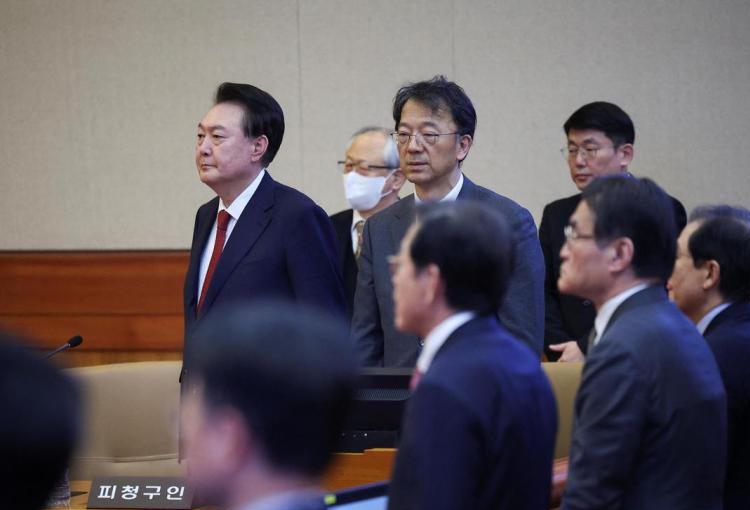
South Korea's suspended president Yoon Seok-yoon told the Constitutional Court Tuesday that he had no intention of carrying out the martial law decree when he imposed the emergency, and that it was not true that he had arrested politicians.
Yonhap and Reuters reported that Yoon spoke at the beginning of the hearing at the invitation of acting Chief Justice Moon Hyung-bae. Mr. Yoon said he had been engaged in public service with a "firm commitment to freedom and democracy."
Mr. Yin said the special forces sent to parliament on Dec. 3 were not meant to paralyze it or stop those who stood in his way of imposing martial law. He knew that such an action would lead to an indefensible crisis.
"In this country, parliament and the press have more power and are in a better position than the president."
Cha Ki-hwan, a lawyer representing Ms. Yoon, outlined the arguments in defense of the martial law decree, saying it was meant to warn the opposition Minjoo party not to abuse its power.
Cha Jihuan told the court that the proclamation order was only a form of martial law, and that Yin Xiyue had no desire to enforce it and could not.
Regarding Yoon's alleged instructions to arrest political and legal professionals, Cha Ki-hwan said that when Yoon declared martial law, he never instructed the detention or detention of legal professionals, as well as the detention of the ruling party's then-leader Han Dong-hoon and National Assembly Speaker Woo Won-sik, and did not order the killing of Han Dong-hoon.
On the reason for the deployment of troops to the National Assembly, Cha Ki-hwan said that it was to inform the people of the destruction of the country and respond to the situation of mass gathering.
Angry supporters of Yoon stormed the district court Tuesday. Dozens of police cars lined the streets, keeping hundreds of supporters 100 meters away from the court.
South Korea's SBS television reported late Tuesday that Yoon went to a military hospital in Seoul after the official debate and did not return to the Seoul detention center.

On January 7th local time, GameStop (GME.US) announced that the company's board of directors had approved a potential executive compensation package worth $3.54 billion, which was targeted at the company's CEO, Ryan Cohen. At the same time, this new compensation package set extremely high performance thresholds: Cohen, the CEO, needed to increase the company's market capitalization from $9.5 billion to $100 billion.
On January 7th local time, GameStop (GME.US) announced that…
According to the British media The Guardian, recently US Pr…
In today's era of deep integration of globalization and dig…
In early 2026, US President Trump forcibly took control of …
Recently, the corn market dynamics analysis released by Aus…
Donald Trump has proposed an "immediate" restriction on lar…